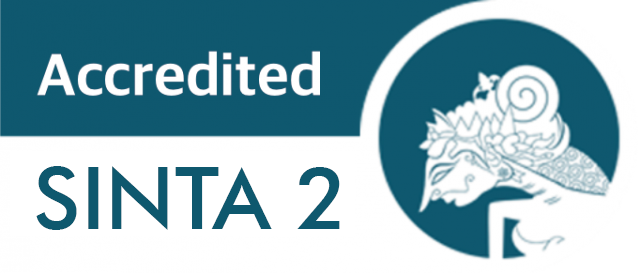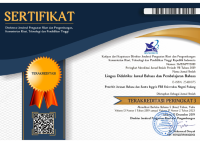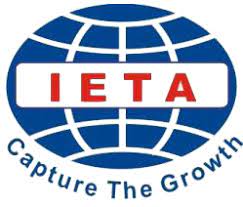Challenging the 'Native Speaker' Ideal: The Impact of Native Speakerism on Language Education
 ), Yayuk Widyastuti Herawati(3),
), Yayuk Widyastuti Herawati(3), (1) University of Portsmouth
(2) Politeknik Negeri Banjarmasin
(3) Universitas Islam Negeri Maulana Malik Ibrahim
 Corresponding Author
Corresponding Author
Copyright (c) 2023 Lingua Didaktika: Jurnal Bahasa dan Pembelajaran Bahasa
DOI : https://doi.org/10.24036/ld.v17i2.122592
Full Text:
 Language : en
Language : en
Abstract
Native-Speakerism has emerged as a prominent element of contemporary TESOL discourse and a frequent talking point when it comes to issues of language-related prejudice and discrimination. It does so by building on a diverse range of sources and intentionally slanting toward amusing the trendy. It is suggested that the ideological conception of native-speakerism applies retroactively to the coveted victimization and the narrative of indignation that goes along with it to people who identify as "non-native speakers.” The researchers used a literature review through six steps to unravel challenging the native speaker ideal: the impact of native speakerism on language education. The reason behind choosing this topic is to find out how deep the ideology of getting advantages that the native-speakers are having in every stage where the non-native speakers are having trouble including different perspectives as well. It is shown how the fortress of victimization then allows those inside through or the people who have been harmed. In this article, the distinction between native and non-native speakers in terms of teaching and learning the English language, The idea that a "native speaker" is inherently more competent to instruct English than a "non-native speaker" is known as the "native speaker's fallacy" as well as strengths and weaknesses of both the characteristics shall be described in detail.
Keywords
References
Adham, M. A, A., & Moahmmed, M. C. (2020). Literature Review as a Research Methodology: An overview and guidelines.
Adrian, H. (2018). Understanding Intercultural Communication: Negotiating a Grammar of Culture. London: Routledge. https://doi.org/10.4324/9781351139526.
Baitman, B. and Véliz Campos, M. (2013). A comparison of oral evaluation ratings by native English speaker teachers and non-native English speaker teachers. Literatura y lingüística, (27), 171–200. https://doi.org/10.4067/s0716-58112013000100010.
Chomsky, N. (1965). Aspects of the theory of syntax. MIT press.
Chung, R. and Mak, B. (2022). Synthesizing near native-accented speech for a non-native speaker by imitating the pronunciation and prosody of a native speaker, Interspeech 2022. https://doi.org/10.21437/interspeech.2022-11124.
Christophersen, P. (1988). Language universals and linguistic typology. London: Routledge.
Davidson, C. (2019). Against English domination in educational contexts: An argument for learning our students’ languages and for allowing their voices to speak. International Multilingual Research Journal, 14(3), 206–216. https://doi.org/10.1080/19313152.2019.1681616.
Davies, A. (2003). The native speaker in applied linguistics. In A. Davies & C. Elder (Eds.), The handbook of applied linguistics (pp. 431-450). Blackwell Publishing.
De Oliveira, L.C. (2019). Future of the non-native English speaker teacher movement. The TESOL Encyclopedia of English Language Teaching, 1–8. https://doi.org/10.1002/9781118784235.eelt0037.
Dewaele, J.-M. (2017). Why the dichotomy ‘L1 versus LX user’ is better than ‘native versus non-native speaker. Applied Linguistics. https://doi.org/10.1093/applin/amw055.
Dey, M. (2021). Psychological processes in language learning and teaching: Scoping review and future research directions. Journal of Psychological Perspective, 3(2), 105-110.
Dey, M. (2023). Book Review on Lourdes Ortega’s “Understanding second language acquisition”: Basic learning of second language. Inverge Jounal of Social Sciences, 2(1), 32-36.
Guerra, L. (2017). Chapter 9. Students’ perceptions and expectations of native and non-native speaking teachers. Native and Non-Native Teachers in English Language Classrooms, 183–204. https://doi.org/10.1515/9781501504143-010.
González-Nueno, M. (1997). The native speaker: An achievable model or a myth? In A. Beretta, J. C. Miller, & L. White (Eds.), Psycholinguistic and sociolinguistic perspectives on second language learning and teaching: Studies in honor of Waldemar Marton (pp. 73-84). Lawrence Erlbaum Associates.
Hanawa, H., Song, X. and Inoue, T. (2017). Keyword generation by native speaker is quick and useful in conversation between native and non-native speaker. 2017 IEEE 21st International Conference on Computer Supported Cooperative Work in Design (CSCWD). https://doi.org/10.1109/cscwd.2017.8066685.
Holliday, A. (2013). Native speakerism. ELT Journal, 67(3), 283-287. https://doi.org/10.1093/elt/cct013
Huang, Z. (2017). Conceptualizing (non-)native speaker identity. Native and Non-Native English Speaking Teachers in China, 19–46. https://doi.org/10.1007/978-981-10-5284-2_2.
Jenkins, J. and Baker, W. (2020). English as a lingua franca. Linguistics. https://doi.org/10.1093/obo/9780199772810-0262.
Jose, K. (2018). Blending cognitive and socio-constructive pedagogies: Building autonomous readers in the ESL classroom. The Idea and Practice of Reading, 57–84. https://doi.org/10.1007/978-981-10-8572-7_5.
Kant, R. (2021). Emotional labor a significant predictor of burnout: A study of teacher educators. Advance Social Science and Humanities. https://doi.org/10.31124/advance.13725544.
Kuncahya, A.O. and Basikin (2019). Professional development challenges for Indonesian english teachers. English Linguistics, Literature, and Language Teaching in a Changing Era, 108–114. https://doi.org/10.1201/9780429021039-14.
Matikainen, T. (2018). Beyond the native speaker fallacy. Teaching English at Japanese Universities, 174–179. https://doi.org/10.4324/9781315147239-20.
Nelson, P. (2019). 2. the return of the non-native: Patrick's mission to Ireland. Conversing with Angels and Ancients, 40–134. https://doi.org/10.7591/9781501729058-005.
Piller, I. (2002). Passing for a native speaker: Identity and success in second language learning. Journal of Sociolinguistics, 6(2), 179-206.
Snyder, H. (2019). Literature review as a research methodology: An overview and guidelines. Journal of Business Research, 104, 333–339. https://doi.org/10.1016/j.jbusres.2019.07.039
Sughrua, W. (2015). Perceptions of alternative research writing: Conjuring up ‘nostalgic modernism’ to combat the ‘native English speaker’ and ‘non-native English speaker’ differentiation amongst Tesol Academics. (En)Countering Native-speakerism, 193–208. https://doi.org/10.1057/9781137463500_13.
Tsuchiya, S. (2020). The native speaker fallacy in a U.S. university Japanese and Chinese program. Foreign Language Annals, 53(3), pp. 527–549. https://doi.org/10.1111/flan.12475.
Utami, M. R., & Aryanto, B. (2022). Aizuchi by Native Speaker and Foreign Speaker on Online Media (Vol. 1, Issue 01). http://publikasi.dinus.ac.id/index.php/struktural/index
Zhang, H. (2021). The term “Native Speaker”: Myth or Reality? Acceptable or Problematic?
 Article Metrics
Article Metrics
 Abstract Views : 441 times
Abstract Views : 441 times
 PDF Downloaded : 118 times
PDF Downloaded : 118 times
Refbacks
- There are currently no refbacks.
Copyright (c) 2023 Lingua Didaktika: Jurnal Bahasa dan Pembelajaran Bahasa

This work is licensed under a Creative Commons Attribution-NonCommercial 4.0 International License.









